Undergoing wisdom teeth removal is common, typically performed during late adolescence or early adulthood. Although the recovery can be uncomfortable, various effective strategies can help manage pain and promote healing. Here are some essential tips to help you navigate the post-surgery period smoothly.
Adhere to Post-Operative Instructions
Following the post-operative instructions provided by your oral surgeon after wisdom teeth removal is crucial. These guidelines are specifically designed to promote proper healing and reduce discomfort. Important recommendations include:
- Taking prescribed medications as directed.
- Avoid strenuous activities for the first few days.
- Using ice packs to reduce swelling and manage pain.
Apply Ice Packs
Ice packs on your cheeks can help reduce swelling and numb the area, relieving pain. For the first 24 to 48 hours after surgery, apply ice packs for 15-20 minutes, with breaks in between to prevent skin damage.
Manage Pain with Medication
Effective pain management is essential in the initial days following wisdom teeth removal. Your oral surgeon will likely prescribe pain medications to help manage discomfort. You can also use over-the-counter pain relievers like ibuprofen or acetaminophen, which are effective options. Always adhere to the dosage instructions and consult your surgeon if you have any concerns.
Stick to a Soft Food Diet
During recovery, eating soft foods that won't irritate the surgical sites is important. Opt for foods that are easy to chew and swallow, such as:
- Mashed potatoes
- Yogurt
- Smoothies
- Applesauce
- Soup (ensure it's not too hot)
Avoid consuming hard, crunchy, or spicy foods, as they can irritate surgical sites and impede healing.
Stay Hydrated
Maintaining good hydration is crucial for your overall health and recovery. Drink ample water, but refrain from using straws, as the suction can dislodge blood clots and potentially lead to a dry socket, a painful condition. Choose water and clear broths, and avoid caffeinated, carbonated, or alcoholic drinks during the early stages of recovery.
Practice Gentle Oral Hygiene
Maintaining proper oral hygiene is essential to prevent infection and aid in healing. Be gentle around the surgical sites and avoid brushing the immediate area for 24 hours. Afterward, rinse your mouth gently with warm salt water multiple times daily, particularly after meals. This practice helps maintain cleanliness and lowers the risk of infection in the treated area.
Prioritize Rest and Recovery
Giving your body time to rest is crucial for a smooth recovery. Take it easy for the first few days following surgery. Elevate your head with pillows while resting to help reduce swelling. Avoid strenuous activities, bending over, or lifting heavy objects after surgery. These actions can elevate blood pressure and may lead to complications.
Monitor Bleeding
Some bleeding is expected following wisdom teeth removal. To manage it, gently bite down on gauze pads provided by your surgeon and change them as instructed. If bleeding persists beyond the first 24 hours or becomes excessive, contact your oral surgeon for advice.
Avoid Tobacco and Alcohol
After surgery, it's essential to refrain from smoking or using tobacco products for at least one week. Doing so helps promote faster healing and reduces the likelihood of complications. Additionally, avoid consuming alcohol as it can interact with medications and impede the healing process.
Watch for Signs of Complications
While most wisdom teeth removal recoveries are uneventful, being aware of potential complications is essential. Contact your oral surgeon if you experience any of the following:
- Severe pain that is not managed by medication
- Excessive swelling or bruising
- Persistent bleeding
- Signs of infection, like fever or pus-like discharge
- Difficulty swallowing or breathing
Gradually Resume Normal Activities
As you begin to feel better, gradually return to your normal activities. Listen to your body and avoid pushing yourself too hard too soon. Follow any additional instructions from your oral surgeon to ensure a smooth and complete recovery.
Following these pain management tips and caring for yourself during recovery can help minimize discomfort and promote a faster, more comfortable healing process.
Contact Johnson Oral Facial Surgery today to learn more!







